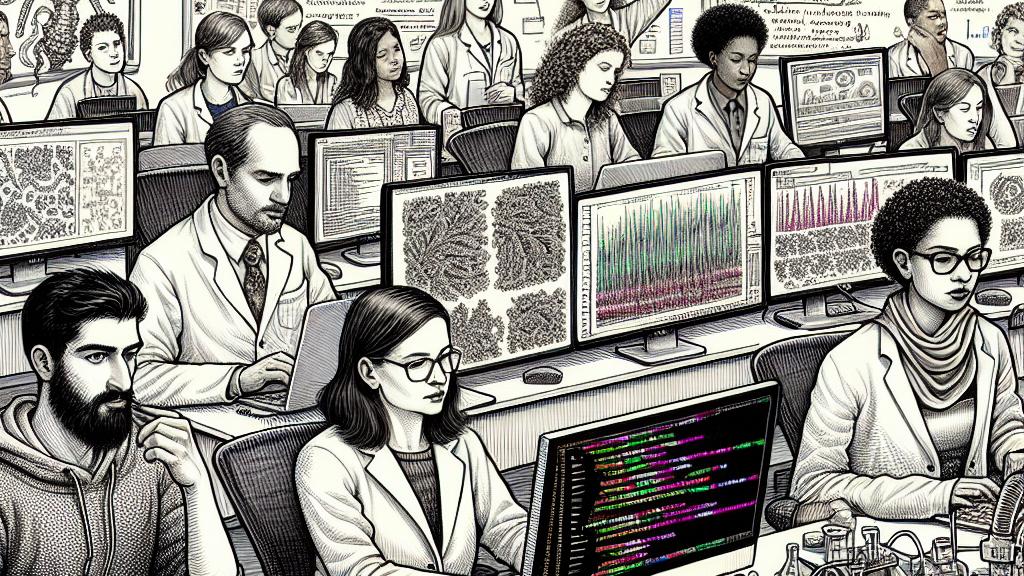From Lab to Code: The Secrets Behind a Successful Coding Bootcamp
Overview
- Examines the critical integration of coding in scientific research practices.
- Describes an innovative, structured coding bootcamp that fosters diverse skill levels.
- Highlighting the importance of teamwork and multi-instructor models in enhancing learning.

The Critical Integration of Coding in Modern Science
In Canada, Christian Landry established a coding bootcamp aimed at enhancing the programming skills of his research team, emphasizing coding's critical role in contemporary scientific research, particularly in systems biology and genomics. With the field's increasing reliance on data analytics and computational methods, the ability to code proficiently is no longer optional but essential for today's scientists. Throughout his 15 years of overseeing a diverse group of researchers trained in various scientific disciplines, Landry recognized a gap in coding knowledge that needed to be addressed. This initiative ensured that lab members could efficiently engage with complex datasets, conduct analyses, and execute bioinformatics tasks, ultimately laying the groundwork for their progression into professional roles, with several graduates successfully venturing into software development careers.
An Innovative Structure for a Multilevel Coding Bootcamp
Designed with careful attention to participant needs, the four-day coding bootcamp featured a multifaceted structure that catered to varying skill levels among the 25 attendees. The initial two days focused on foundational coding concepts for beginners, covering essential programming principles and fostering a comfortable learning environment. As the camp advanced, intermediate coders joined in for more complex sessions, while challenges tailored for those with advanced skills were set for the final day. Activities such as simulating gene sequence evolution provided practical experiences that bridged theoretical knowledge with real-world application. The strategic division among participants not only maximized engagement but encouraged a collaborative spirit, allowing advanced coders to mentor beginners and create a supportive learning atmosphere for collective growth.
Leveraging Diverse Teaching Approaches through Teamwork
Landry's coding bootcamp highlighted the exceptional benefits of incorporating multiple instructors into the teaching model, effectively diversifying perspectives and enriching the educational experience. Each instructor brought unique expertise and teaching styles, enabling participants to learn through various approaches, enhancing comprehension and retention of coding techniques. This diversity in instruction supported an inclusive environment where all participants felt empowered and engaged. Moreover, the bootcamp emphasized the significance of teamwork, a cornerstone of successful scientific inquiry. By collaborating on coding challenges, participants developed essential soft skills such as communication and conflict resolution, which are crucial within team-based research settings. This holistic approach fostered a vibrant community, ultimately reinforcing the idea that collaboration and diverse instruction are paramount to nurturing the next generation of adept scientists ready to tackle the demands of modern research.

Loading...